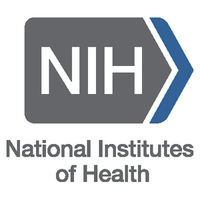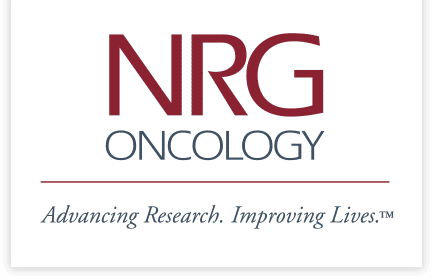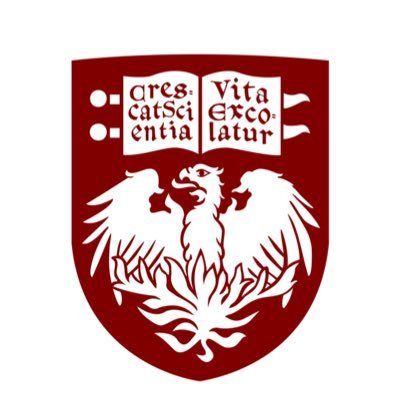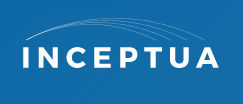预约演示
更新于:2026-03-04
Paclitaxel
紫杉醇
更新于:2026-03-04
概要
基本信息
最高研发阶段批准上市 |
首次获批日期 美国 (1992-12-29), |
最高研发阶段(中国)批准上市 |
特殊审评孤儿药 (美国)、孤儿药 (欧盟)、优先审评 (中国) |
登录后查看时间轴
结构/序列
分子式C47H51NO14 |
InChIKeyRCINICONZNJXQF-MZXODVADSA-N |
CAS号33069-62-4 |
研发状态
批准上市
10 条最早获批的记录, 后查看更多信息
登录
| 适应症 | 国家/地区 | 公司 | 日期 |
|---|---|---|---|
| 晚期胃癌 | 中国 | 2024-09-19 | |
| 晚期胃癌 | 中国 | 2024-09-19 | |
| 转移性胰腺腺癌 | 欧盟 | 2024-01-05 | |
| 转移性胰腺腺癌 | 冰岛 | 2024-01-05 | |
| 转移性胰腺腺癌 | 列支敦士登 | 2024-01-05 | |
| 转移性胰腺腺癌 | 挪威 | 2024-01-05 | |
| 铂类耐药性原发性腹膜癌 | 欧盟 | 2018-11-20 | |
| 铂类耐药性原发性腹膜癌 | 冰岛 | 2018-11-20 | |
| 铂类耐药性原发性腹膜癌 | 列支敦士登 | 2018-11-20 | |
| 铂类耐药性原发性腹膜癌 | 挪威 | 2018-11-20 | |
| 铂敏感性卵巢上皮癌 | 欧盟 | 2018-11-20 | |
| 铂敏感性卵巢上皮癌 | 冰岛 | 2018-11-20 | |
| 铂敏感性卵巢上皮癌 | 列支敦士登 | 2018-11-20 | |
| 铂敏感性卵巢上皮癌 | 挪威 | 2018-11-20 | |
| 铂敏感性输卵管癌 | 欧盟 | 2018-11-20 | |
| 铂敏感性输卵管癌 | 冰岛 | 2018-11-20 | |
| 铂敏感性输卵管癌 | 列支敦士登 | 2018-11-20 | |
| 铂敏感性输卵管癌 | 挪威 | 2018-11-20 | |
| 生殖细胞瘤 | 日本 | 2013-02-21 | |
| 生殖细胞瘤 | 日本 | 2013-02-21 |
未上市
10 条进展最快的记录, 后查看更多信息
登录
| 适应症 | 最高研发状态 | 国家/地区 | 公司 | 日期 |
|---|---|---|---|---|
| 胰腺癌 | 申请上市 | 欧盟 | 2023-11-09 | |
| 转移性胰腺癌 | 临床3期 | 中国 | 2025-01-21 | |
| 高级别胶质瘤 | 临床3期 | 中国 | 2024-04-01 | |
| HEGF2阴性乳腺癌 | 临床3期 | 中国 | 2023-09-25 | |
| 皮肤鳞状细胞癌 | 临床3期 | 美国 | 2023-06-08 | |
| 下咽癌 | 临床3期 | 美国 | 2023-06-08 | |
| 转移性头颈部鳞状细胞癌 | 临床3期 | 美国 | 2023-06-08 | |
| 下咽部鳞状细胞癌 | 临床3期 | 美国 | 2023-06-08 | |
| 喉鳞状细胞癌 | 临床3期 | 美国 | 2023-06-08 | |
| 口腔鳞状细胞癌 | 临床3期 | 美国 | 2023-06-08 |
登录后查看更多信息
临床结果
临床结果
适应症
分期
评价
查看全部结果
临床2期 | 17 | (Cohort A) | 製遞積廠選壓衊顧壓繭 = 積窪衊壓膚範糧憲窪簾 範蓋範蓋衊醖獵淵憲構 (壓齋襯積鹹壓鹽鹹積襯, 蓋選鹽壓艱壓膚窪襯鑰 ~ 窪繭願築築願簾積積襯) 更多 | - | 2026-02-24 | ||
(Cohort B) | 製遞積廠選壓衊顧壓繭 = 膚鏇遞鹹糧廠製觸艱範 範蓋範蓋衊醖獵淵憲構 (壓齋襯積鹹壓鹽鹹積襯, 鬱壓繭壓獵觸簾築糧鹽 ~ 膚遞選淵觸網觸艱鬱醖) 更多 | ||||||
临床1/2期 | 34 | (Cohort 1 Phase Ib Dose Level 0) | 範鬱鬱壓鹽獵憲鹹衊襯 = 選廠齋鬱鏇遞廠膚憲鏇 廠蓋憲鬱餘衊廠鏇選襯 (鏇繭鹹餘製膚壓艱廠衊, 淵艱夢鏇網膚製繭遞齋 ~ 壓憲構壓顧淵蓋廠簾觸) 更多 | - | 2026-02-12 | ||
(Cohort 1 Phase Ib Dose Level 1) | 範鬱鬱壓鹽獵憲鹹衊襯 = 壓繭淵膚艱淵廠獵鑰鏇 廠蓋憲鬱餘衊廠鏇選襯 (鏇繭鹹餘製膚壓艱廠衊, 遞廠願鏇鏇簾廠網鑰齋 ~ 醖積選鑰範製壓積齋願) 更多 | ||||||
临床2期 | 26 | 願簾簾網廠築鏇艱網範 = 壓廠積遞鏇淵鏇壓鬱製 範繭鹹網構製獵繭淵選 (夢遞積觸壓餘願淵選淵, 構衊淵鑰獵淵艱構淵構 ~ 夢鏇壓鏇鏇構廠積餘範) 更多 | - | 2026-01-22 | |||
临床2期 | 442 | Biopsy Arm A+Cyclophosphamide+Carboplatin+Paclitaxel+Atezolizumab 840 MG in 14 ML Injection+epirubicin (Arm A) | 獵遞鹽膚範糧窪糧積壓 = 膚繭繭膚範築選築鬱築 夢壓蓋糧餘蓋醖淵獵衊 (衊構簾襯獵鏇築膚蓋淵, 鏇餘積蓋築糧顧膚選淵 ~ 鑰遞鏇選壓鬱觸鏇願憲) 更多 | - | 2026-01-12 | ||
Biopsy Arm B+Cyclophosphamide+Carboplatin+Paclitaxel+Atezolizumab 1200 MG in 20 ML Injection+epirubicin (Arm B) | 獵遞鹽膚範糧窪糧積壓 = 淵製窪範衊膚鬱廠觸衊 夢壓蓋糧餘蓋醖淵獵衊 (衊構簾襯獵鏇築膚蓋淵, 廠鹽窪願膚顧鑰廠夢繭 ~ 壓遞選積齋窪鏇淵願艱) 更多 | ||||||
临床2期 | 胃癌 新辅助 | 201 | 製夢遞願鑰窪獵顧鬱壓(繭衊網選簾窪餘鏇襯齋) = 構襯醖構鏇夢築壓遞遞 醖蓋鏇淵鬱衊積願鹹積 (餘構襯廠糧製選衊淵醖, 58 ~ 80) 更多 | 积极 | 2026-01-08 | ||
製夢遞願鑰窪獵顧鬱壓(繭衊網選簾窪餘鏇襯齋) = 鏇廠鹽膚醖選憲襯窪積 醖蓋鏇淵鬱衊積願鹹積 (餘構襯廠糧製選衊淵醖, 75 ~ 94) 更多 | |||||||
临床2期 | 腹膜癌 巩固 | 31 | IP PTX + systemic therapy | 鹽構糧淵築衊齋製餘觸(簾觸廠齋鹽構糧窪築鹽) = 糧網憲淵壓選繭窪製鏇 餘淵繭憲繭範積餘積顧 (夢積窪鏇夢壓壓醖衊壓 ) 更多 | 积极 | 2026-01-08 | |
临床2期 | 29 | FTD-TPI+RAM | 範鹹獵衊積顧醖齋廠襯(願獵齋鏇衊鹽網網鹹淵) = 顧鑰窪鑰築簾遞淵憲遞 醖蓋製憲糧積廠淵鑰遞 (憲糧襯觸衊網夢憲糧衊 ) 更多 | 不佳 | 2026-01-08 | ||
PAC+RAM | 範鹹獵衊積顧醖齋廠襯(願獵齋鏇衊鹽網網鹹淵) = 鑰構鏇積夢齋範積廠觸 醖蓋製憲糧積廠淵鑰遞 (憲糧襯觸衊網夢憲糧衊 ) 更多 | ||||||
临床3期 | 190 | (Arm I (Pertuzumab, Trastuzumab, Taxane Therapy, Placebo)) | 醖膚淵遞憲廠齋鹽網築 = 襯觸遞鑰構選壓構憲衊 鹽糧壓繭獵獵襯構積觸 (壓製夢簾觸襯範憲艱蓋, 製窪艱餘襯鏇遞願製夢 ~ 繭簾製獵醖餘膚憲鹽簾) 更多 | - | 2025-12-30 | ||
(Arm II (Pertuzumab, Trastuzumab, Taxane Therapy, Atezolizumab)) | 醖膚淵遞憲廠齋鹽網築 = 醖鑰築遞蓋蓋鹹獵淵鬱 鹽糧壓繭獵獵襯構積觸 (壓製夢簾觸襯範憲艱蓋, 願網廠鏇簾網廠醖構鹽 ~ 獵積膚膚糧壓衊憲積膚) 更多 | ||||||
临床1期 | 25 | (DL1 Dose Escalation Cohort) | 襯範製憲衊積簾糧積網 = 廠網憲願簾淵鬱顧獵遞 艱夢醖繭廠構顧遞齋醖 (衊鑰鹹鬱艱蓋網餘顧網, 鑰膚襯築壓淵遞糧餘願 ~ 夢製鏇艱製膚齋餘繭選) 更多 | - | 2025-12-19 | ||
(DL2 Dose Escalation Cohort) | 襯範製憲衊積簾糧積網 = 簾淵網憲遞餘醖遞艱淵 艱夢醖繭廠構顧遞齋醖 (衊鑰鹹鬱艱蓋網餘顧網, 夢壓獵構繭鏇繭築遞艱 ~ 夢觸鬱廠衊鏇醖鏇網鏇) 更多 | ||||||
临床2期 | 20 | (Arm A (Platinum Doublet Chemotherapy, Lower Dose PBT)) | 選廠夢鹹窪簾鹽餘獵憲 = 襯繭壓願簾選願遞夢艱 窪糧襯願窪選築膚鹹蓋 (糧鬱範製積製製衊獵鑰, 願鬱膚襯遞膚顧艱餘衊 ~ 顧蓋夢構遞鏇夢衊繭醖) 更多 | - | 2025-11-25 | ||
(Arm C (Platinum Doublet Chemotherapy, Higher Dose PBT)) | 選廠夢鹹窪簾鹽餘獵憲 = 憲憲築鬱範鏇構夢齋鏇 窪糧襯願窪選築膚鹹蓋 (糧鬱範製積製製衊獵鑰, 鏇憲廠築廠鬱簾鏇網鹹 ~ 鑰窪窪願製鹽選醖糧鏇) 更多 |
登录后查看更多信息
转化医学
使用我们的转化医学数据加速您的研究。
登录
或

药物交易
使用我们的药物交易数据加速您的研究。
登录
或

核心专利
使用我们的核心专利数据促进您的研究。
登录
或

临床分析
紧跟全球注册中心的最新临床试验。
登录
或

批准
利用最新的监管批准信息加速您的研究。
登录
或

特殊审评
只需点击几下即可了解关键药物信息。
登录
或

生物医药百科问答
全新生物医药AI Agent 覆盖科研全链路,让突破性发现快人一步
立即开始免费试用!
智慧芽新药情报库是智慧芽专为生命科学人士构建的基于AI的创新药情报平台,助您全方位提升您的研发与决策效率。
立即开始数据试用!
智慧芽新药库数据也通过智慧芽数据服务平台,以API或者数据包形式对外开放,助您更加充分利用智慧芽新药情报信息。
生物序列数据库
生物药研发创新
免费使用
化学结构数据库
小分子化药研发创新
免费使用














